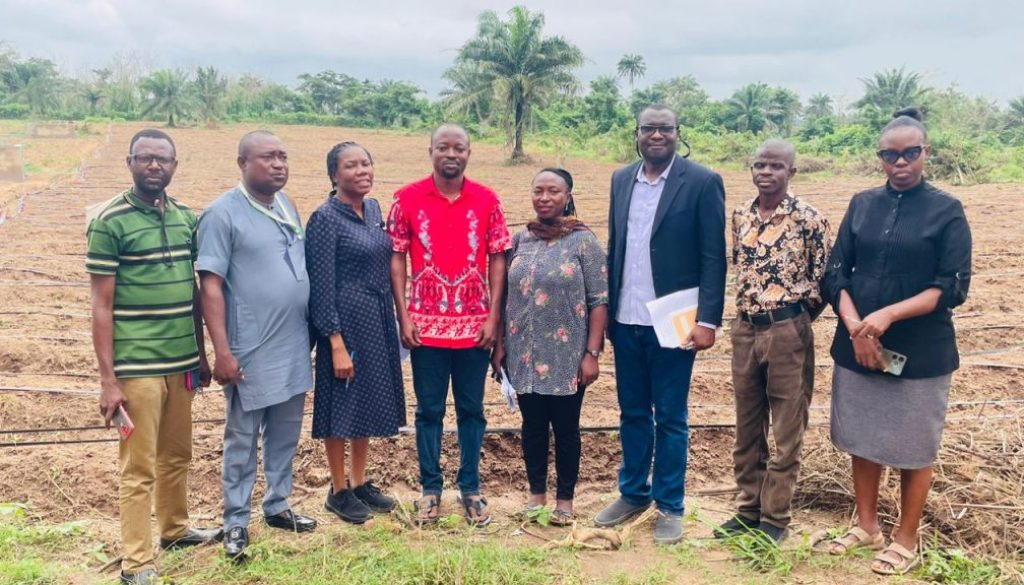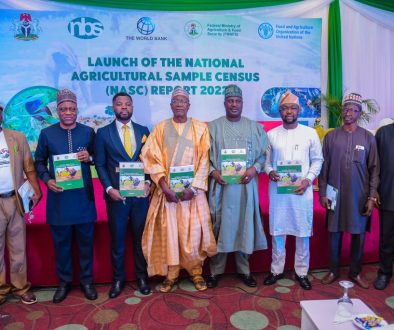Innovative Organic Farming Practices: A Visit from Standard Organization of Nigeria (SON) to AB Agrotech’s Demonstration Farm.
In the heart of Nigeria, a revolutionary approach to agriculture is taking root at AB Agrotech’s demonstration farm. This explores the insights gained during a recent visit by the Standard Organization of Nigeria (SON) to this cutting-edge facility, which began operations in 2024 on land that had lain fallow for over seven years.
The farm’s commitment to sustainable practices is evident from the moment one sets foot on the property. An industrial pumping machine draws water from a borehole to reservoirs, forming the backbone of an innovative irrigation system. This system employs a dual approach: a network of drip lines arranged in a zigzag pattern for vegetables, promoting optimal air circulation, and sprinklers for the sweet corn fields. This thoughtful design demonstrates AB Agrotech’s dedication to water conservation and crop-specific care.
At the heart of the farm’s operations lies its state-of-the-art nursery. Here, seedlings are nurtured in coco peat mixed with manures, a sustainable growing medium that provides an ideal environment for young plants. The nursery staff meticulously test seed viability, ensuring that only the strongest, most promising specimens make their way to the fields. This attention to detail at the earliest stages of plant growth sets the foundation for a bountiful harvest.
As we toured the farm, the diversity of crops was impressive. Sweet corn, with its 65-day growth cycle, stood tall in neat rows. Nearby, onion seedlings pushed through the soil, their cultivation guided by expert advice from Professor Adeoluwa, who emphasized the importance of proper manure application and drip irrigation for optimal yields. Perhaps most intriguing was the research being conducted on sweet potatoes, with AB Agrotech exploring innovative processing methods to transform this humble tuber into flour and other food products, potentially revolutionizing food security in the region.
What sets AB Agrotech apart is its holistic approach to pest management and soil health. Rather than relying on chemical pesticides, the farm employs a variety of natural strategies. Intercropping with pest-resistant plants like bitter leaf creates a natural barrier against harmful insects. Moreover, the farm maintains patches of natural habitat at regular intervals, providing alternative food sources for pests and promoting biodiversity. This approach, as Professor Adeoluwa pointed out, not only controls pests but also enhances the overall ecosystem of the farm.
The impact of AB Agrotech extends far beyond its boundaries. Chairman Abraham Gbenro spoke passionately about the company’s commitment to community development through agricultural extension services. By encouraging neighboring farmers to adopt organic practices and cultivate high-value crops like sweet potatoes, AB Agrotech is fostering a regional shift towards more sustainable and profitable farming methods.
Equally impressive is the company’s business acumen. Before a single seed is planted, off-takers are secured, ensuring a market for the harvest. Decisions on pricing and logistics are made in consultation with a Legal Committee and Risk Management Board, demonstrating a level of corporate governance rarely seen in agricultural enterprises of this scale.
As our visit concluded, it became clear that AB Agrotech is not just a farm, but a vision for the future of agriculture in Nigeria and beyond. By seamlessly blending traditional farming wisdom with cutting-edge technology and sustainable practices, they are charting a course towards a more food-secure, environmentally friendly, and economically viable agricultural sector.
The demonstration farm stands as a testament to what is possible when innovation, sustainability, and community engagement converge. As Nigeria and the world grapple with the challenges of feeding a growing population in the face of climate change, the lessons from AB Agrotech offer a beacon of hope and a roadmap for a more sustainable agricultural future.


